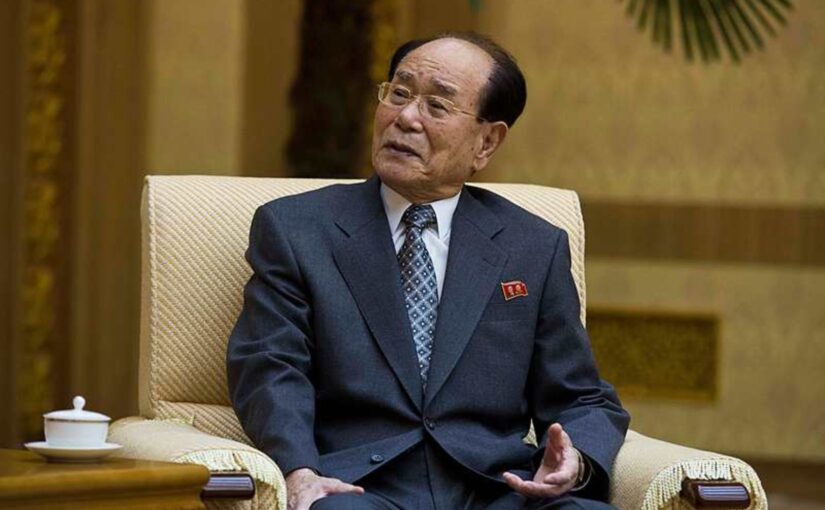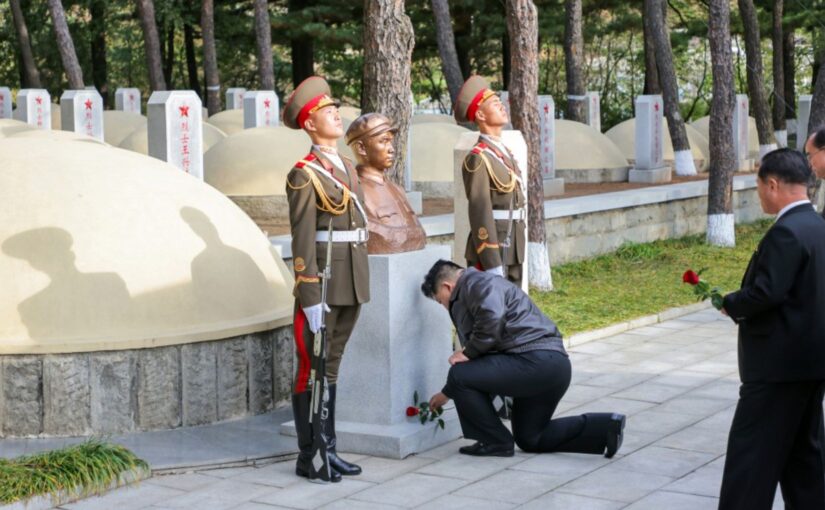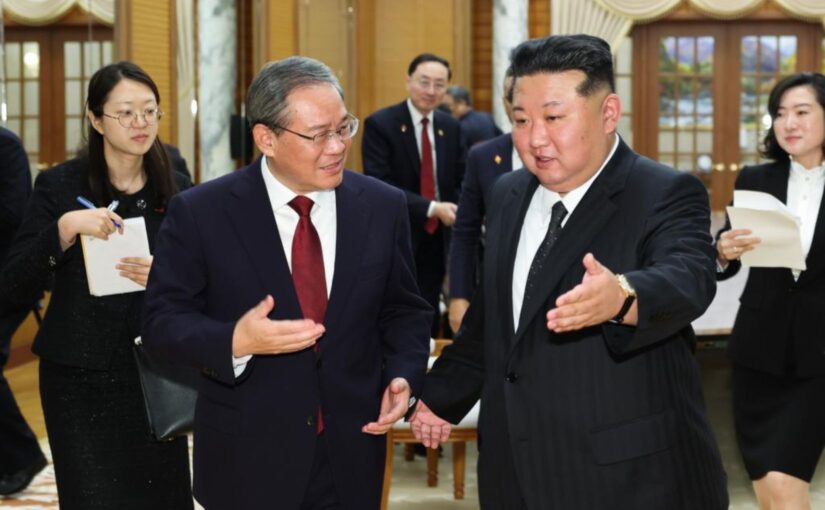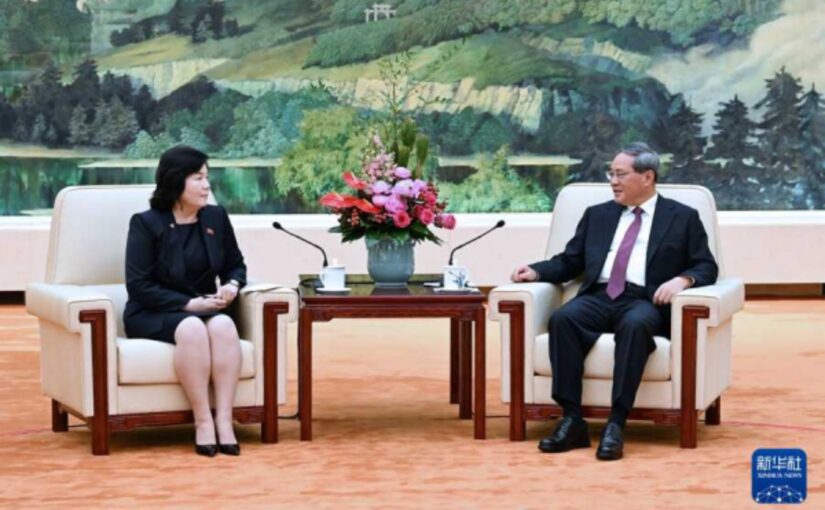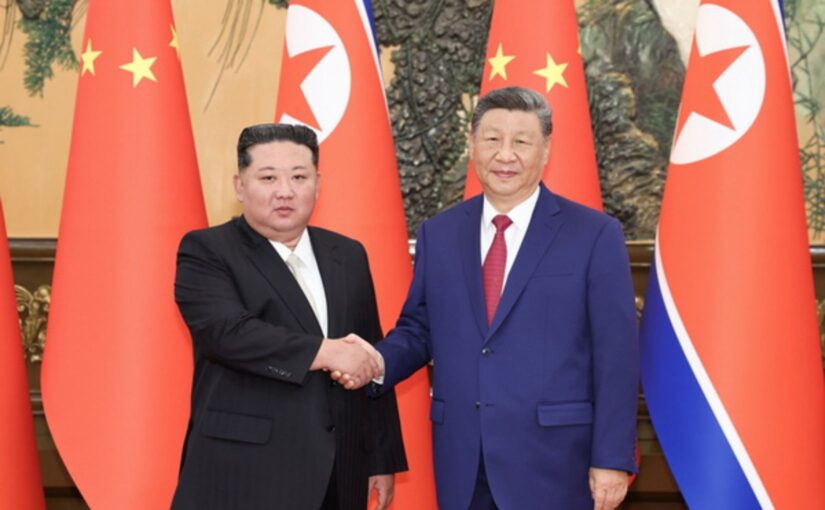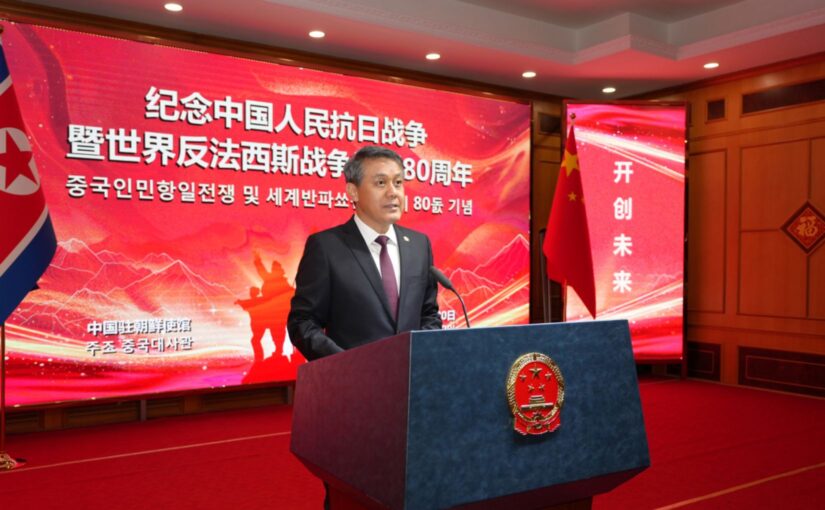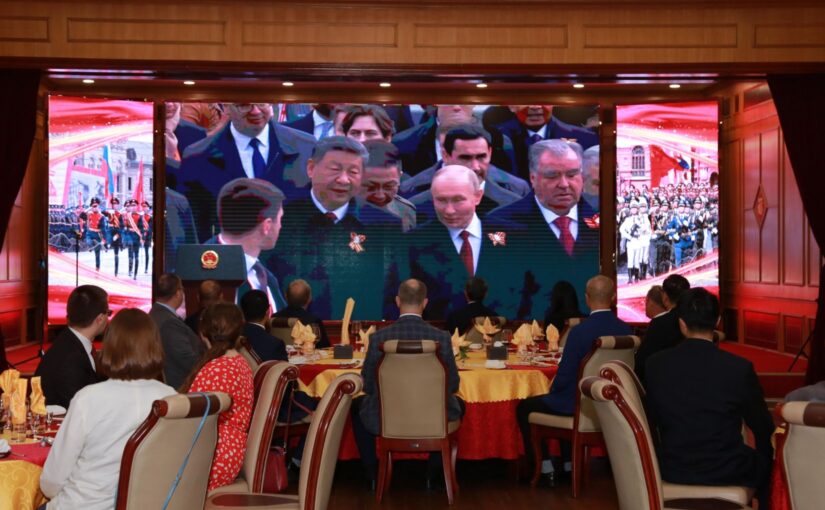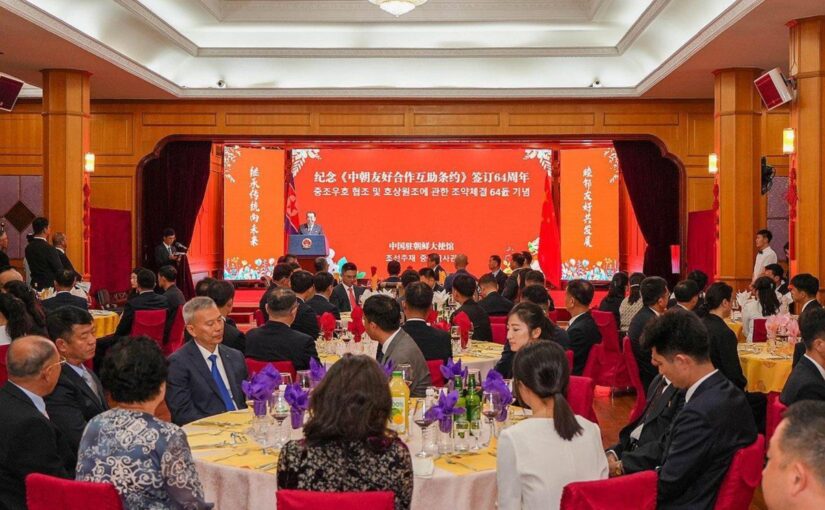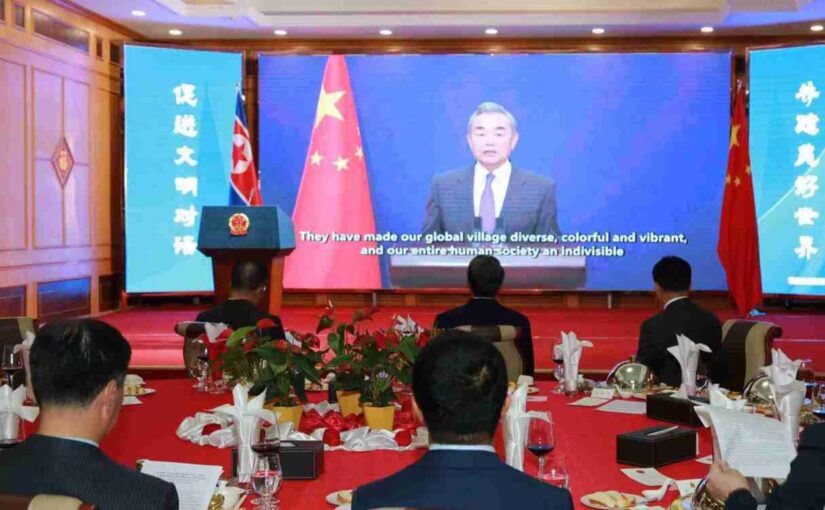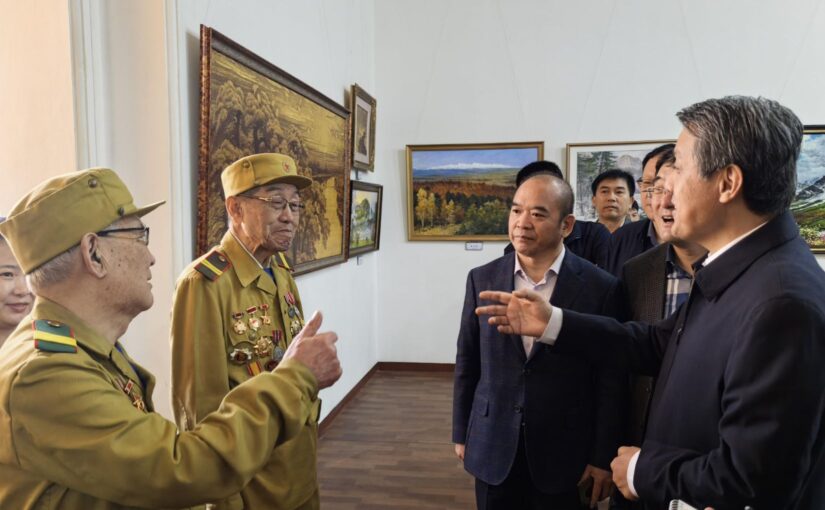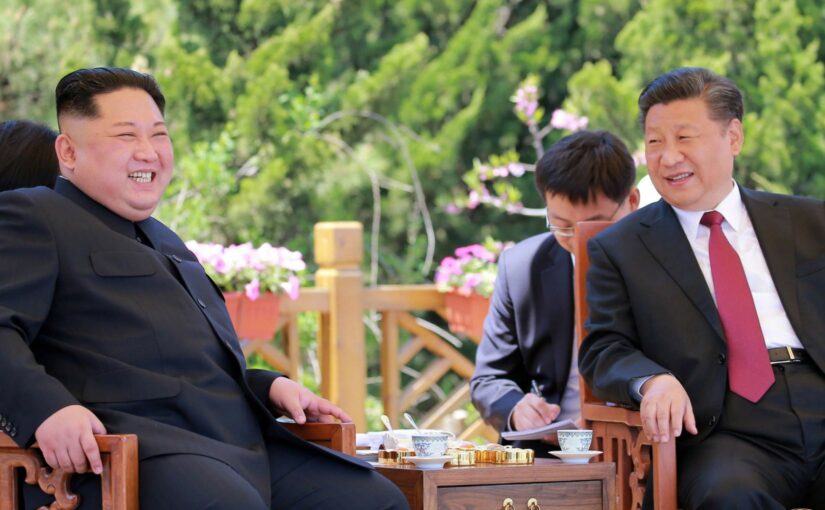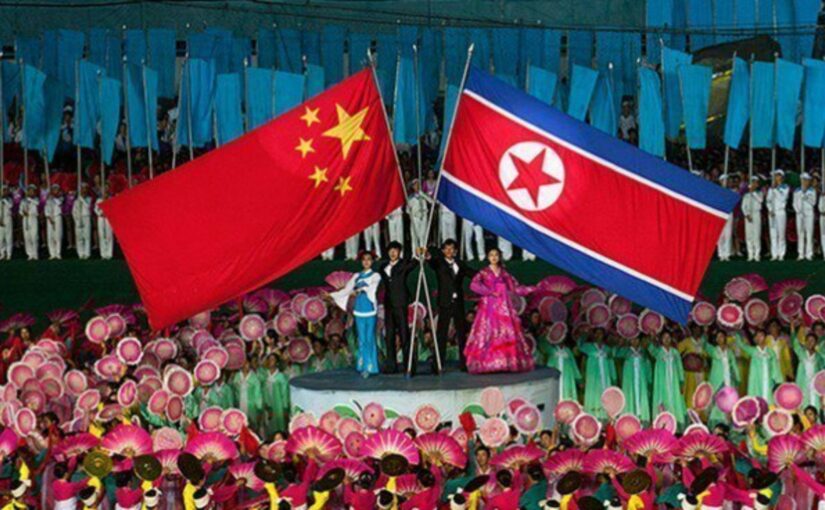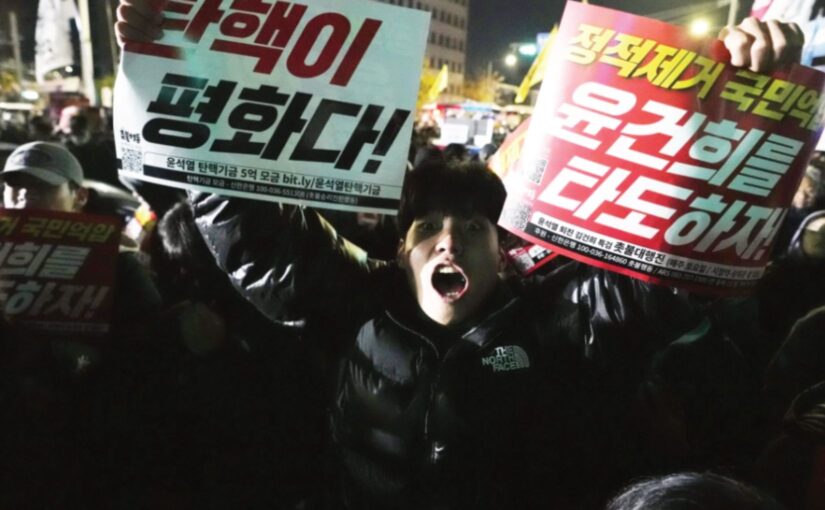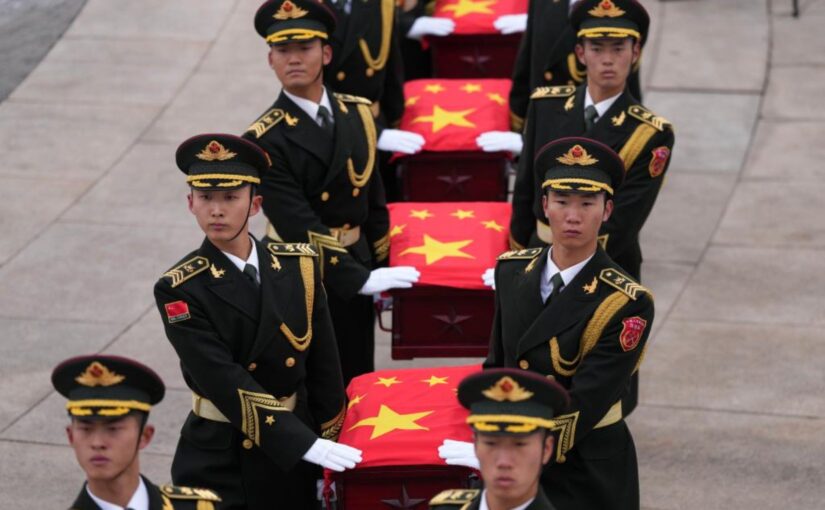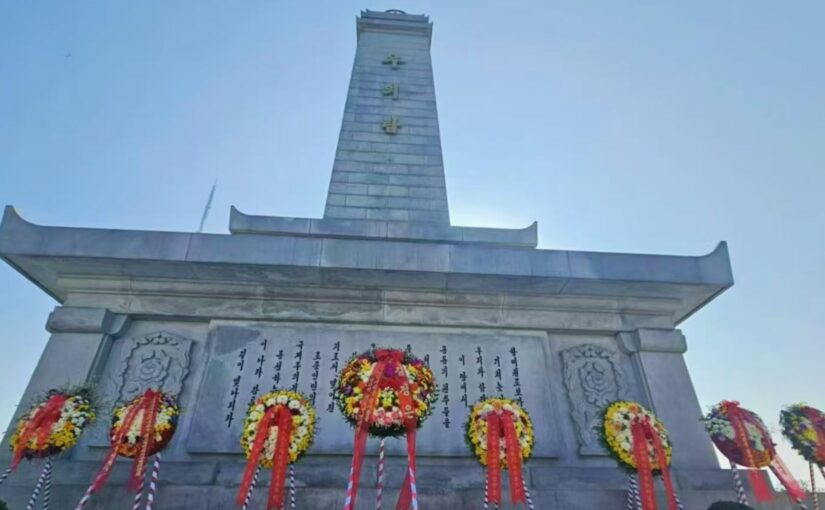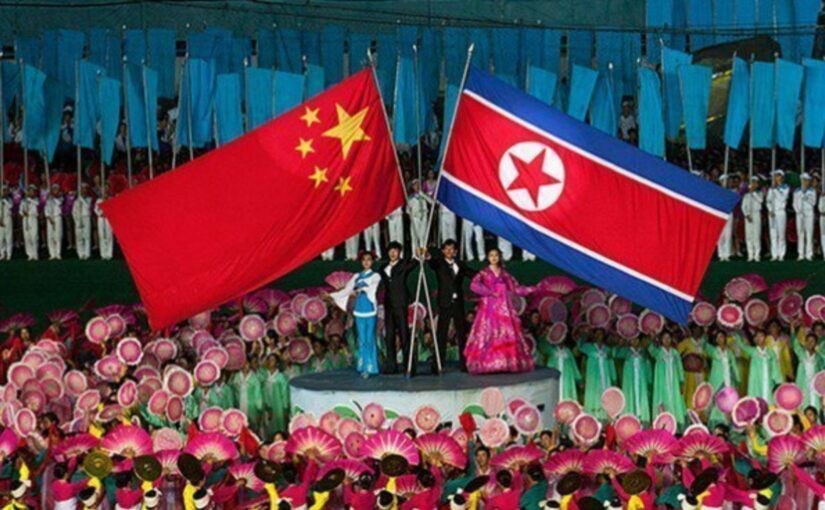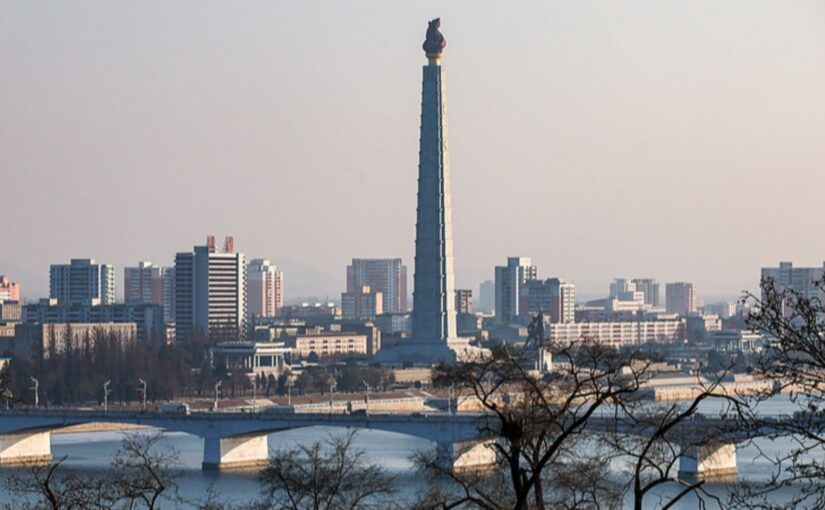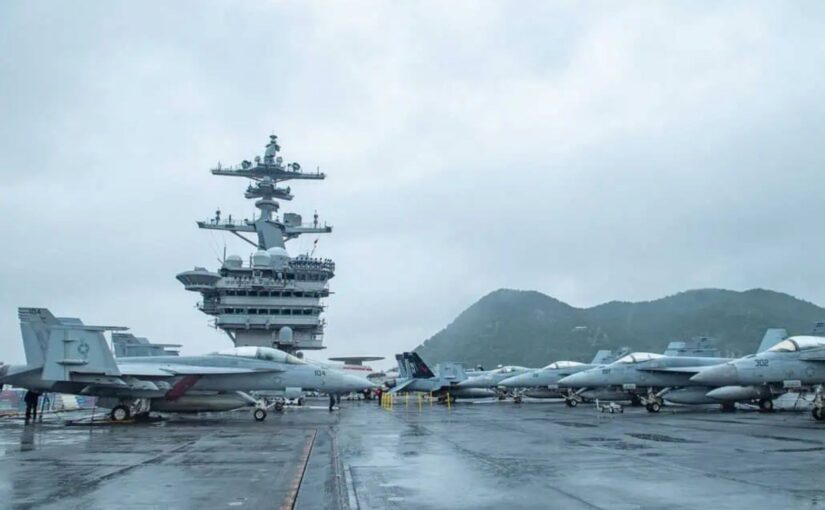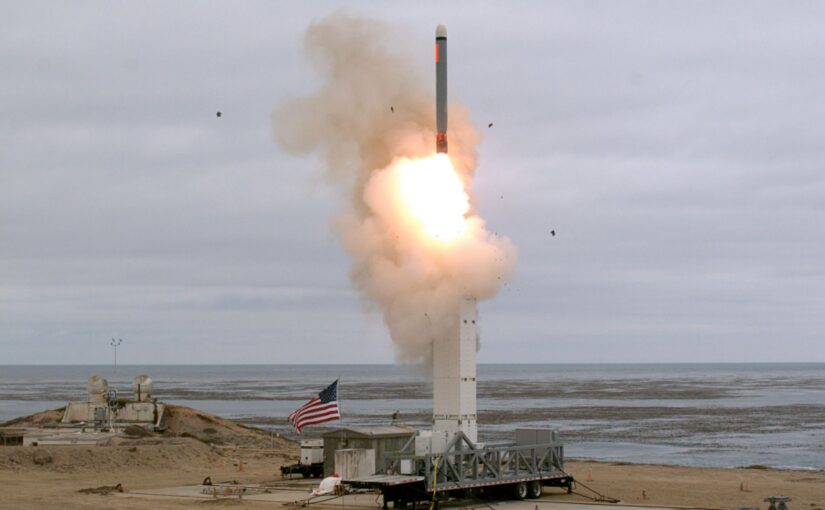The following article by Gary Wilson, first published in Struggle La Lucha, gives an overview of alarming developments in the Pacific, with the US and its allies gearing up towards the formation of an “Asian version of NATO”.
Gary notes that in late June, the US, Japan and South Korea conducted joint military exercises in the region. These exercises, labelled ‘Freedom Edge’, “targeted not only North Korea but also China” and “aim to demonstrate military capabilities near China’s borders”. As such they form “part of a broader network of Indo-Pacific alliances led by the US to encircle and confront China”.
The article cites a pertinent and accurate observation by the Democratic People’s Republic of Korea (DPRK) Ministry of Foreign Affairs: “Lurking behind the recent drill is the strategic design of the US to escalate regional military tensions, exert pressure upon the Far East of Russia, and lay siege to China”.
What’s more, US President Joe Biden has invited Japanese Prime Minister Fumio Kishida and South Korean President Yoon Suk Yeol to Washinton to participate in the NATO summit in July. No doubt the US regime will be looking to use the summit to consolidate its New Cold War alliance in the Pacific, directed against China, Russia and the DPRK.
As Gary concludes, “the specter of war will loom large over the NATO summit in Washington.”
On June 30, the Democratic People’s Republic of Korea (DPRK) blasted the joint military exercises conducted by the U.S., Japan, and South Korea in the region, labeling them as “reckless and provocative.” The DPRK pointed out that the military “war games” disrupt peace on the Korean peninsula and the broader region.
The hostile military drills expose the formation of an “Asian version of NATO” led by the U.S., declared a statement by the DPRK’s Ministry of Foreign Affairs on June 30.
The three-day military operation known as “Freedom Edge” took place from June 26 to 29, involving South Korea, Japan, and the U.S. The “Edge” featured all three militaries, including the U.S.’s Theodore Roosevelt Carrier Strike Group, headed by a nuclear-powered U.S. aircraft carrier, Japanese Defense Force naval carriers and destroyers, and Republic of Korea F-16 Falcon fighter jets.
Freedom Edge targeted not only North Korea but also China.
The exercise draws its name from other U.S. military operations with Japan (Keen Edge) and South Korea (Freedom Shield). The annual Freedom Shield and Keen Edge exercises aim to demonstrate military capabilities near China’s borders.
South Korea submits to imperialist Japan
These maneuvers are part of a broader network of Indo-Pacific alliances led by the U.S. to encircle and confront China. The Freedom Edge war maneuvers came out of an agreement between the U.S., Japan, and the Republic of Korea at Camp David last August. That agreement was historic because never before had the Republic of Korea submitted to such an agreement with imperialist Japan, which had occupied and colonized Korea from 1910 to 1945 (when the Korean People’s Revolutionary Army ousted them and the Democratic People’s Republic of Korea was formed).
South Korean President Yoon Suk Yeol’s Camp David agreement with Japan has been denounced throughout the Republic of Korea. Some have called it the country’s “biggest humiliation.” Yonhap News Agency reported on May 31 that President Yoon’s approval rating has fallen to 21%.
The DPRK’s Ministry of Foreign Affairs condemned the U.S., Japan, and South Korea for their continuous provocative military actions against the DPRK and other independent states in the region.
“Lurking behind the recent drill is the strategic design of the U.S. to escalate regional military tensions, exert pressure upon the Far East of Russia, and lay siege to China,” the Ministry statement said.
In recent years, the U.S. has intensified military exercises surrounding China and Korea, forming new military partnerships like the AUKUS and QUAD.
U.S. President “Genocide Joe” Biden has invited Japanese Prime Minister Fumio Kishida and South Korean President Yoon Suk Yeol to Washinton in July for more “trilateral talks” as well as participation in the NATO war summit taking place on July 9-11.
NATO targets China, Russia, Iran, and North Korea
NATO Secretary General Jens Stoltenberg said at the NATO Parliamentary Assembly in Sofia, Bulgaria, on May 27 that one of the “main topics at the Washington Summit will be global partnerships, and in particular, our Asia Pacific partners – Australia, New Zealand, Japan and South Korea.”
The U.S.-commanded military alliance called NATO includes the armed forces of the U.S. and all other countries in the alliance, including Britain, Germany, and France.
NATO has undertaken eight military actions, all since 1990. The alliance did not undertake any military operations during the Cold War. Since 1990, NATO has engaged in two actions related to the first Gulf War, two in the former Yugoslavia, and military operations in Afghanistan, Iraq, Somalia, and Libya.
Stoltenberg then said that NATO’s primary focus now is targeting China, Russia, Iran, and North Korea. He called them threats to NATO’s dominance. He didn’t talk about the war threats that have come from NATO and the “Asian version of NATO.”
With his stilted bureaucratese, Stoltenberg did add, “NATO will remain Europe and North America, but to work with our partners in the Asia Pacific and therefore welcome that the leaders of the Asia Pacific will be at, we have invited them to attend, the summit in Washington.”
[ChatGPT translation: While NATO’s focus remains on Europe and North America, we recognize the importance of collaboration with our Asia-Pacific partners. Therefore, we’re pleased to welcome leaders from the Asia-Pacific region to the upcoming summit in Washington — the Asian NATO.]
The specter of war will loom large over the NATO summit in Washington.
